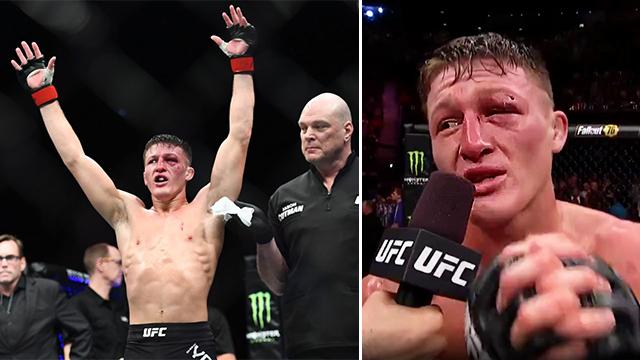When New Zealand-based MMA fighter Shane Young raised his arms in victory in the Octagon last week, he shocked viewers everywhere—and likely gained new admiration from fans in the process—with a surprisingly passionate post-fight speech.
Young, who is just 25 years old, has been competing in UFC as a featherweight fighter since 2012.




